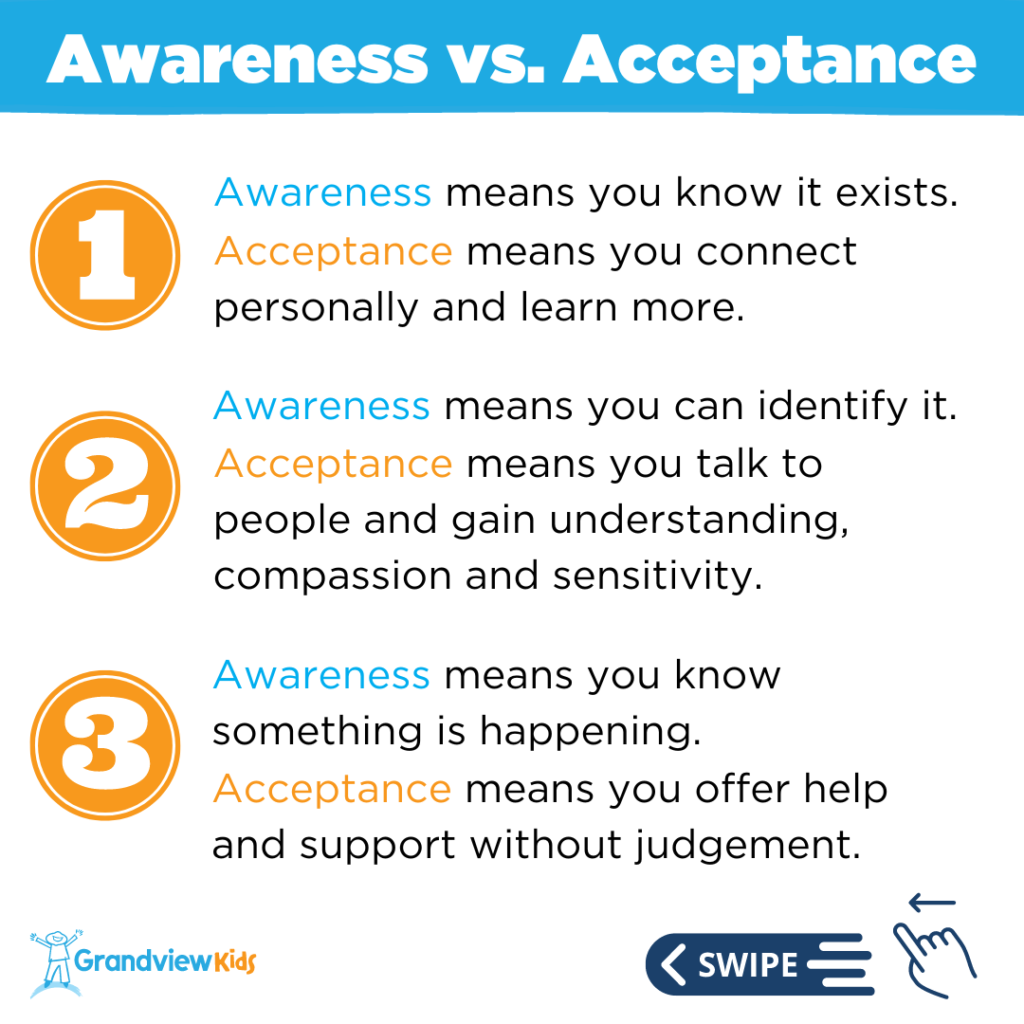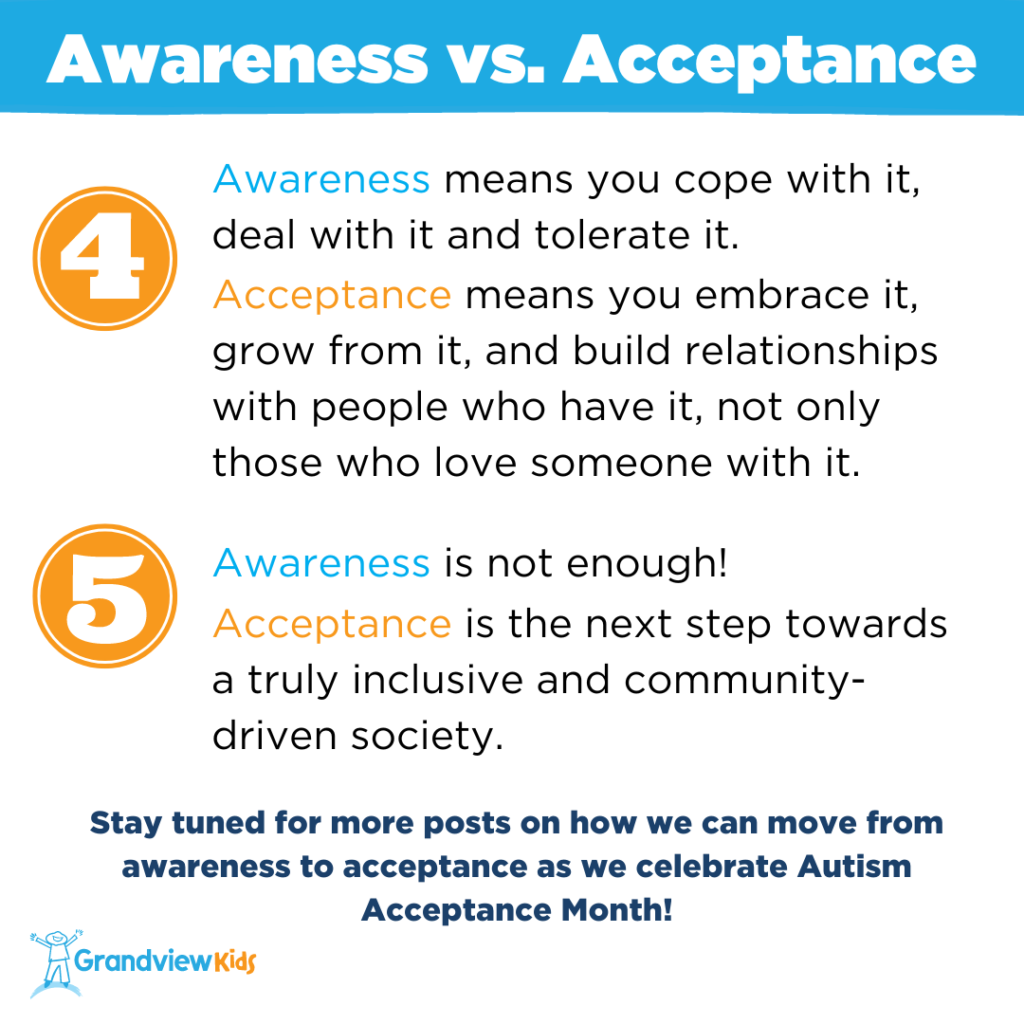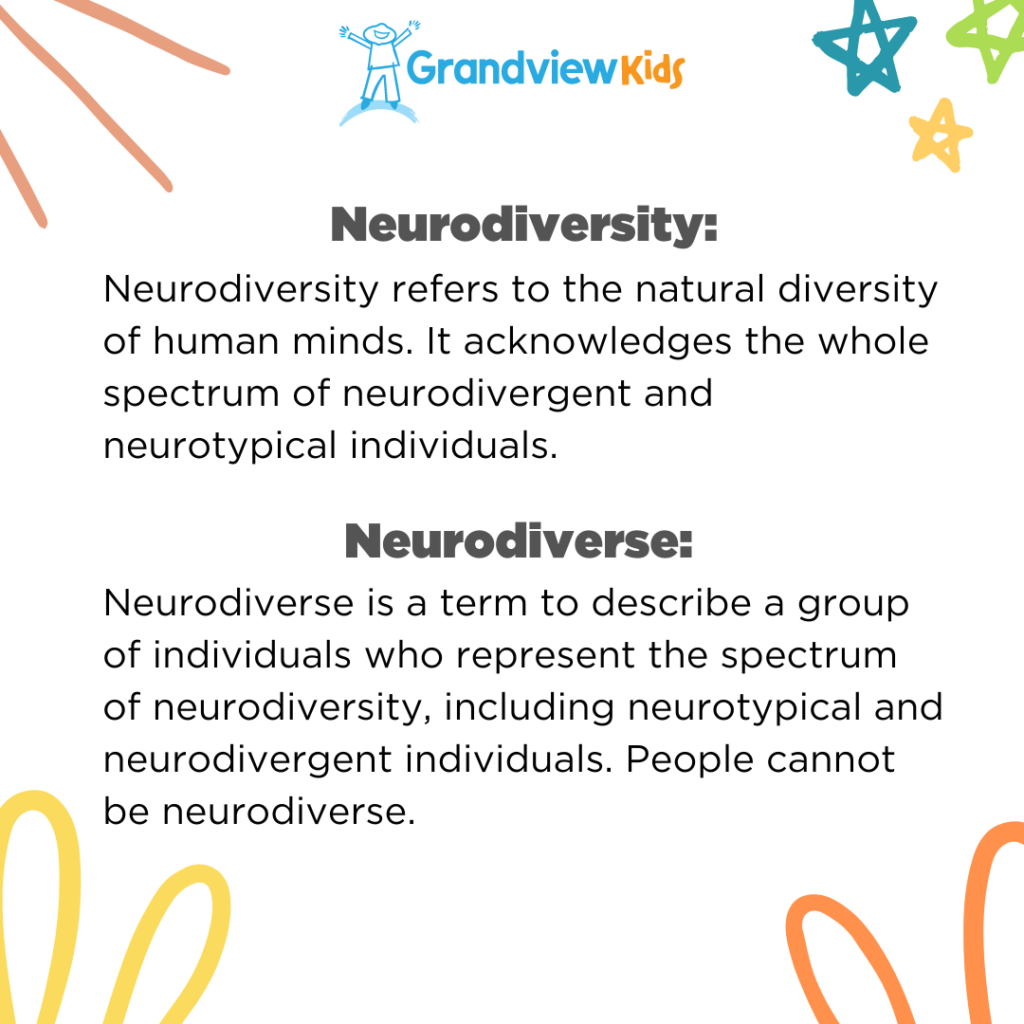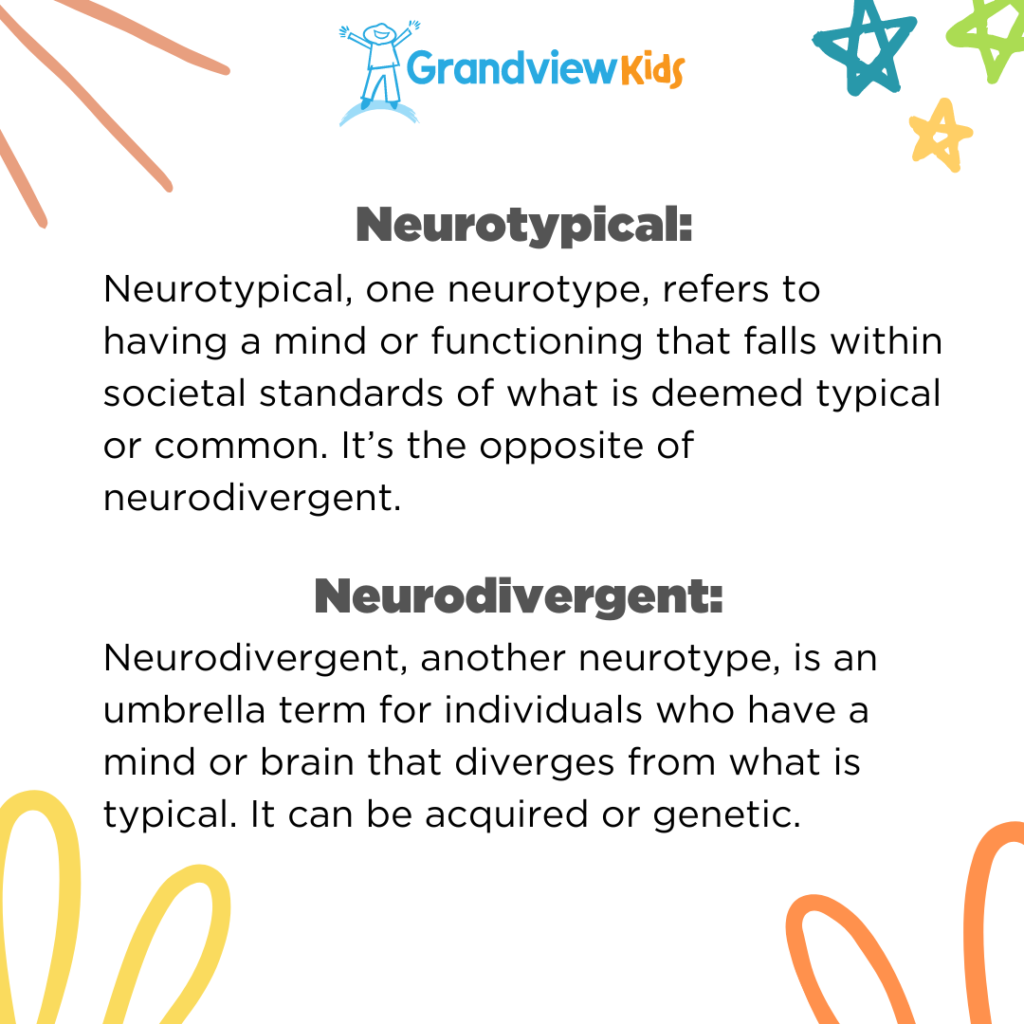Grandview Kids is proud to support, partner with and learn from autistic clients, caregivers, employees and community members. While society has greater awareness about autism than ever before, autistic people still face a number of challenges throughout life, including prejudice, bullying and limited job opportunities.
Awareness vs. Acceptance


Education is important, but we can’t stop there. Autism Acceptance means celebrating differences and encouraging tangible action to support and include autistic individuals. Acceptance means understanding and acknowledging the diversity of lived experiences, cultures and environments.
Definition of Autism Spectrum Disorder (ASD)
In clinical terms, Autism Spectrum Disorder (ASD) is a neurodevelopmental disorder with a wide range of symptoms and ability levels. ASD is an encompassing diagnostic category that includes 2 symptom domains: 1) social communication impairments; 2) restricted, repetitive patterns of behaviours and interests (Zwaigenbaum et al., 2019).
It’s also important to know:
1. No two Autistic people/persons with Autism are the same.
2. Every Autistic person/person with Autism has their own unique mix of traits, strengths, sensory systems, personalities, interests and needs.
3. Autism is a dynamic disability, so a person’s needs or abilities may fluctuate or change.
Language matters
You may also have heard about person-first and identify-first language. This refers to how someone describes themselves or others.
Person-first example: Person with Autism
Identity-first example: Autistic person/Autistic
Tip: Ask about their preference! Follow their lead and be flexible, as preferences may change over time.


How can you be an ally during Autism Acceptance Month and beyond?
Here are a few tips from our Ability Acceptance Presenter, Mitchell Daniels:
1. Educate yourself. Learn about Autism. Learn about disabilities. Know that some are visible and some are not. Learn from disabled people and value their perspectives.
2. Offer support, but let them take the lead. Asking how you can support someone is always a recommended step, but do not assume just because someone has different needs or abilities that they need help. Be open and friendly.
3. Avoid talking to someone’s support person first. Engage directly with the person to whom you are talking. Sometimes, people may defer to their support person but do not assume that is their preference.
4. Always be kind, understanding and patient. Some people may take longer to process information. Give them time to respond, and get comfortable with silence while you wait.
5. Recognize that not everyone communicates verbally. Give them time to demonstrate how they prefer to communicate. If the person uses communication technologies, watch what they’re doing and respond as you would usually. It’s just another way to talk. Remove distractions and give them your full attention.
6. Remember that language matters. Ask their preference, whether it’s identity-first or person-first. Be flexible and follow their lead, as their preference may change over time.
7. Educate others. Call out ableism, which dismisses the challenges of disabled people and assumes every person has the same capacity and resources to handle things. Aim to build spaces, communities and opportunities where differences are celebrated and encouraged.
These are just a few of the many ways to be an inclusive ally. Where are you going to start?
Check out more Grandview Kids articles
- Celebrating Ahaana: Finding sound, strength and community on Cochlear Implant Day
- Navigating the intersection of disability and race as a caregiver: Honouring Black History Month
- Embracing hope through every challenge: Brock’s journey
- Jack’s resilience shines through every step: Rare Disease Day
- February: Dates of Significance
